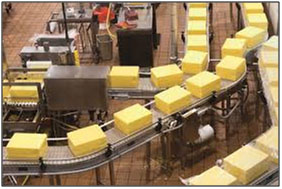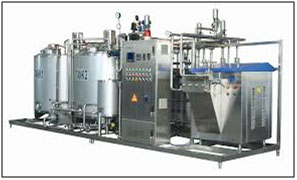
Ovreview
 Across the world, food-processing sector has a large potential for growth and socio economic impact as it leads to income generation by creating jobs for rural poor and thus reduces the burden on agricultural sector. It also helps in reduction of wastage, value addition, foreign exchange earnings and enhancing manufacturing competitiveness.
Across the world, food-processing sector has a large potential for growth and socio economic impact as it leads to income generation by creating jobs for rural poor and thus reduces the burden on agricultural sector. It also helps in reduction of wastage, value addition, foreign exchange earnings and enhancing manufacturing competitiveness.
This sector serves as a vital link between the agriculture and industrial segments of the economy. Adequate focus on this could greatly alleviate our concerns on food security and food inflation.
About Bachelor of Vocation (B.Voc )–Food Processing and Preservation

 Download Syllabus for B.Voc Entrance Test
Download Syllabus for B.Voc Entrance Test
B.Voc. – Food Processing and Preservation is a three year Degree program offering specialization in Fruit & vegetable processing, Milk & dairy products and Agro products processing in the I, II & III year respectively with exit levels after each year such as Diploma /Advanced Diploma.
Curriculum details would include a suitable mix of general education and skill development
which are designed for specific job roles in Food Processing industry. The course includes content which equip skill development component in the candidate. Each year includes practical as well as theory courses which impart appropriate and relevant knowledge to the Food Processing industry. The candidate will be exposed to project work and on the job training in the industry as well.
Various visiting guest faculty from the Food Processing and Preservation Industry as well as the experienced faculty of the institute would be sharing their knowledge, information, experience, technology with students.
Eligibility Criteria
The eligibility condition for admission to B.Voc. programme shall be 10+2 or equivalent, in Science and Home Science stream.
Job Prospects
Food Processing Industry is one of the major employment intensive segments constituting 12.13 per cent of employment generated in all Registered Factory sector in 2011-12. According to the latest Annual Survey of Industries (ASI) for 2011-12, the total number of persons engaged in registered food processing sector is 17.77 lakhs.
With aptitude to work and requisite skills one can find employment as:
· Research Scientists: Research scientists work towards enhancing yield, flavour, nutritive value, etc. of packaged food so that they have greater acceptance among consumers.
· Food technologists: The fundamental work of food technologist is to offer techniques for preservation, conservation and processing of food items to be packaged.
· Engineers: for planning, designing, improving and maintaining the entire processing system of a unit.
· Organic Chemists: to ensure that there is proper method to convert raw materials to processed food.
· Biochemists: Looking after the flavor, texture, storage, quality of packaged food products
· Analytical Chemists: Working as quality analyst and checker, analytical chemists ensure prime quality packaging of foods and beverages.
· Home Economists: Ensuring congruency of the instructions on the containers and the food products contained in it is the job of home economists.
· Managers and accountants: Besides technical professionals, non-technical jobs such as managers and accountants work towards the management of the processing unit and in the supervision of the production process.
Top Companies
Some of the leading food processing companies in India have come up in joint collaboration with MNCs operating in India. While companies from developed nations provide technical expertise, Indian firms offer cheap labor and production centers.
Leading food processing companies in India include: Amul, Godrej Industrial Limited, Dabur India Ltd., PepsiCo India Holdings, Nestle India Pvt. Ltd., Britannia Industries Ltd., Parle Products Pvt Ltd and many more with various MNC’s as well.